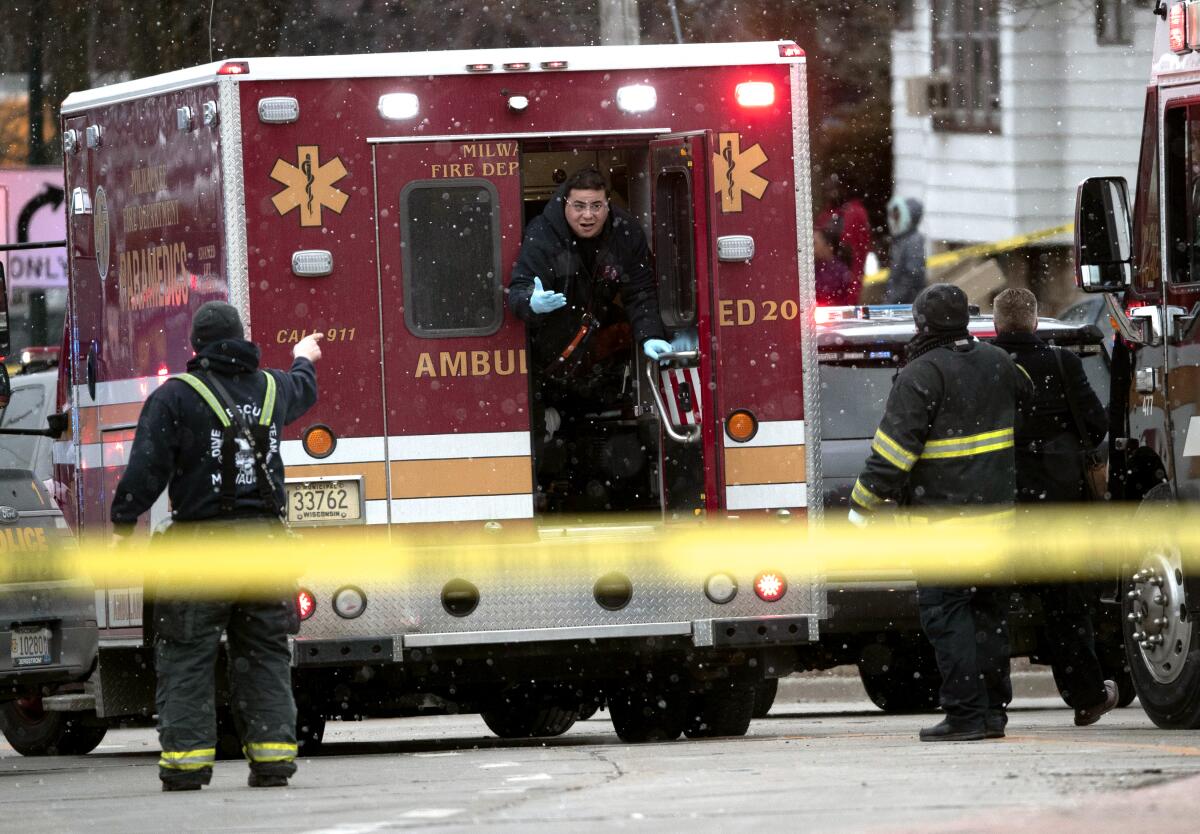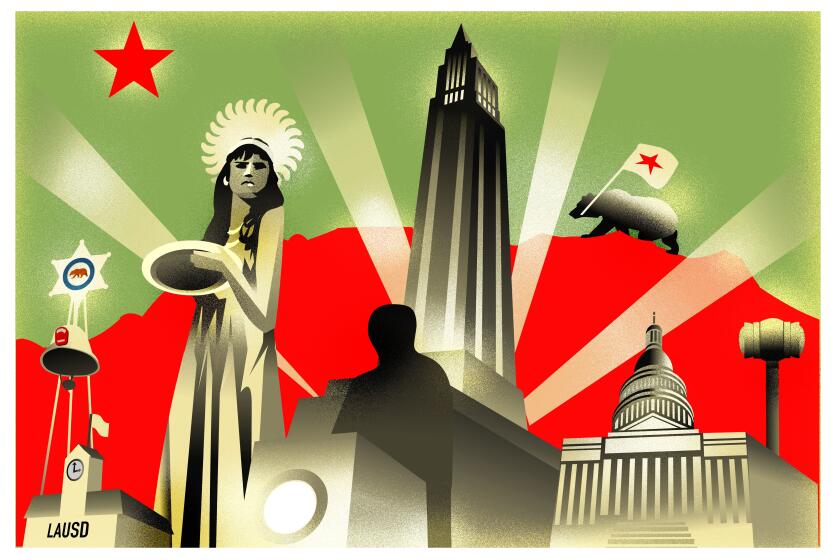Opinion: Milwaukee just took a bullet to its heart

- Share via
Multiple victims are dead in another mass shooting. That’s the biggest headline of the day, whether or not you have heard about it.
This one, I admit, hit a little too close to home for me. Because this one occurred at the Molson Coors factory in Milwaukee, just less than two miles from where I lived for four years while attending Marquette University.
While in school, I had friends who either worked or interned at the Miller campus. In the summers, I’d ditch campus via bicycle to reach the greener pastures of Currie Park, and pass through the MillerCoors campus where State Street would suddenly transform into a brick road winding through the Wonka-esque monument of beer production at mass scale. It can be called the heart of Milwaukee, and it just took a bullet.
As news broke of an active shooter and the texts started coming in from group chats and former classmates, I realized I still have friends who work there. Acquaintances, really. Friends of friends, whom I either know more by name than face or vice versa, and from whom, through the digital grapevine, I received a live update of the police’s attempt to stop the violence: “They hadn’t gotten him yet.”
I found myself rattled even more, petrified and captured by the moment as a madman with a tool for murder — what early reporting described as a disgruntled former employee with a gun — took hostage the defining institution of a city that only a year ago I called home.
And just like that it ended. Details are still being reported, and total fatalities are as of this writing yet unknown.
This has to end. But it won’t. And what’s really messed up, what really scares me, is that this tragedy barely pierced the mass consciousness. As I searched for any shred of online updates, my Twitter feed — stocked full of media types and gatekeepers and drivers and discussers of news — remained inundated with the same-old, same-old, the inconsequential minutia of our magnified election cycle and beyond. And please spare me the “Twitter is not real life” comments, because when I flipped on a traditional news outlet — CNN — Wolf Blitzer was consumed by coronavirus. There was no mention of the story still unfolding in Milwaukee.
Do we even care anymore?
What does it say that a directionless argument in the most recent Democratic debate over who has and who hasn’t sufficiently supported gun control made more of an impression on the media than an actual real-world instance of gun violence?
Los Angeles Times editorial board endorsements for the U.S. House, California ballot measures and more.
It’s scary. Even worse than my feeling of helplessness is my feeling of self-contempt. Because only after this pandemic of violence plucked one string too close to my heart did I feel a unique sense of unreality and fear and frustration. Only after my forever home-away-from-home fell victim to a mass shooting did I beg my editors to let me write about the now-routine act of violence, to use the platform at my disposal — however small and pointless it may be — to speak out. Because there’s a version of reality where instead of studying journalism at Marquette University, I studied in Pittsburgh or El Paso or Gilroy or literally any of the countless other communities traumatized by similar acts of cowardice, and I would’ve written this exact piece then, only with a few proper nouns swapped out.
But I’m writing this now, because it finally struck me where it really hurts — a place it seems gun violence will inevitably touch all of us.
And as the city of Milwaukee grieves, I urge us all not to let the moment breathe, to not let our memory and anger and passion escape in an exhale of coping. Forget setting partisan politics aside in a moment of tragedy. Because I know which side cares to prevent more bloodshed, and which side simply copies and pastes another round of thoughts and prayers.
If you’re reading this and think it’s too soon for politics, please put yourself in my shoes: Milwaukee is your home, it’s in distress, and nobody seems to care.
More to Read
A cure for the common opinion
Get thought-provoking perspectives with our weekly newsletter.
You may occasionally receive promotional content from the Los Angeles Times.












